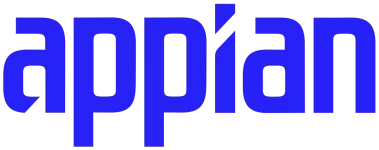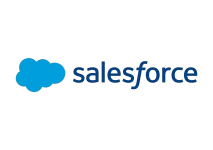If you can’t decide between Appian and Salesforce, you are in the right place. Appian and Salesforce are two marketing tools available, but their intended audiences are quite different. Compare them side by side:
Key Takeaways
- Appian is a low-code automation platform that allows businesses to build applications and automate workflows visually, with minimal coding required. It offers features for process automation, case management, and business rules. Appian is suitable for businesses seeking to streamline their processes and improve efficiency through automation. However, it may not provide the same level of comprehensive CRM and marketing automation features as Salesforce.
- Salesforce is a leading CRM platform used by businesses of all sizes. It offers a wide range of features, including sales automation, marketing automation, customer service, and analytics. Salesforce’s extensive customization options and integrations make it a versatile tool for managing customer relationships and sales processes. It is well-suited for businesses with complex sales and marketing operations that require a highly scalable and customizable CRM solution. While Appian is focused on process automation and low-code development, Salesforce offers a more comprehensive CRM and marketing automation solution. Businesses seeking advanced CRM features and integration with sales and marketing workflows would find Salesforce more suitable. On the other hand, Appian is a better fit for organizations looking to streamline internal processes and build custom applications with minimal coding efforts.


Main Differences Between Appian and Salesforce
Appian is a low-code application development platform, allowing users to build custom applications with minimal coding. Salesforce is a comprehensive CRM platform with sales, marketing, and service capabilities. The choice between Appian and Salesforce depends on whether users prioritize low-code application development or require a complete CRM and marketing platform.
Pricing of Appian and Salesforce
Here is a comparison of the pricing plans for Appian and Salesforce:
Appian
- Offers various pricing plans based on the features and usage
- Free plan: Basic features with limited functionality
- Standard plan: $60 per user per month
- Enterprise plan: Custom pricing for higher volumes and additional features
- Appian’s pricing is more flexible and may be cheaper depending on the region
Salesforce
- Offers various products, each with unique pricing
- Typically, pricing will vary from $50/month to $350/month
- The Salesforce Customer 360 platform, which includes customer success tools, requires a custom quote
- Additional features such as advanced analytics and marketing automation, are available for an additional cost
- Salesforce’s pricing is more expensive compared to Appian
It’s worth noting that Appian and Salesforce are both low code application platforms, but Appian is more focused on business process management and workflow automation, while Salesforce is more focused on sales, marketing, and customer service. Additionally, Appian’s pricing is more flexible and may be more affordable depending on the region, while Salesforce’s pricing is more expensive and requires a custom quote for some products.
My experience with Appian and Salesforce
Appian
Appian is a low-code automation platform that allows businesses to design, build, and deploy custom applications and workflows. It’s designed to streamline processes and enhance automation across various aspects of operations.
However, Appian’s primary strength is in process automation and application development, and it might not offer the same level of comprehensive customer relationship management (CRM) features as Salesforce. If you’re seeking a platform that covers sales, marketing, customer service, and more in addition to process automation, Appian might not be the best fit.
Salesforce
Salesforce is a comprehensive customer relationship management (CRM) platform that covers various facets of business operations, including sales, marketing, customer service, and more. It’s known for its scalability and customization options.
If your business requires a platform that not only handles process automation but also encompasses a wide range of customer-related functions, Salesforce could be a strong choice. Keep in mind that Salesforce’s extensive capabilities might come with a steeper learning curve compared to platforms with a narrower focus like Appian.
Consider your business needs – Appian for process automation and application development or Salesforce for a comprehensive CRM solution that spans various customer-related functions.
Our Winner
After analyzing both Appian and Salesforce, we concluded that there is no clear winner. The platforms are way too different and serve distinct purposes to be compared equally.
Consider their differences and find out which one you need for your business.





